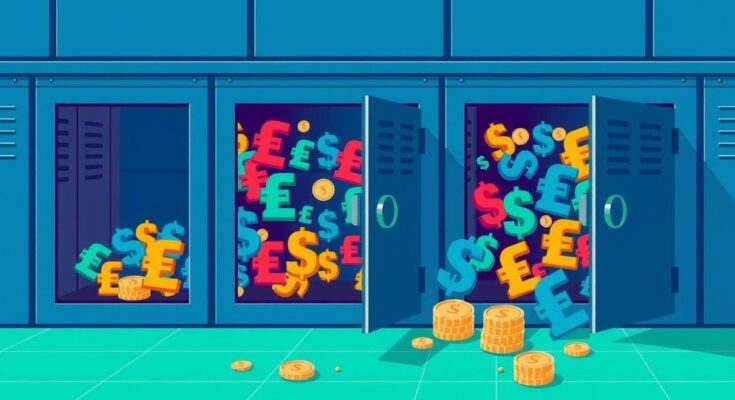Despite Javier Milei’s presidency, strict currency controls in Argentina remain a significant barrier for foreign investment, with no immediate changes expected. The timing of lifting these controls is critical for negotiations with the IMF, amid political uncertainties as midterm elections approach and inflation concerns linger. Investors face various strict regulations that continue to hinder potential investments in the country.
In Argentina, strict exchange controls present significant obstacles for foreign investors even over a year after President Javier Milei’s inauguration. Although Milei has implemented measures to reduce these restrictions, there are few signs of imminent changes as the rules have persisted for six years and some have even been tightened recently. The timing of lifting these controls is crucial for ongoing negotiations with the International Monetary Fund (IMF) regarding a new program to replace the current US$44 billion agreement expiring in December.
Current futures pricing in the Rofex market signals that investors expect continuous pesos depreciation aligned with the government’s one percent monthly peg, which fails to align with inflation rates. Anticipation of potential control extensions until midterm elections may hinder Milei’s potential to foster voter support. According to Pilar Tavella, a strategist at Balanz Capital Valores, “The market is not pricing in the lifting of currency and capital controls before the elections.”
Foreign direct investment has dwindled significantly, with 2024 inflows dropping to US$89 million—the lowest since 2003—and a private-sector current account deficit reaching a record US$952 million. The 2024 RIGI foreign investment program yielded only six significant investments, each under US$10 billion. For 2025, predictions for foreign investments stand at US$1.4 billion, according to Grupo Mariva.
Analysts suggest that the government may refrain from removing restrictions before the midterm elections, as they aim to avoid exacerbating inflation volatility. Javier Milei stated in early February that he plans to eliminate controls by January 1, 2026, and could expedite this removal if the IMF offers additional funds.
Currently, investors encounter numerous restrictions, including:
– Cross-restriction rule: Investors cannot purchase dollars in the spot market 90 days before or after a legal foreign exchange transaction on the parallel market.
– Mandatory bank accounts: Investors must deposit dollars from securities transactions into bank accounts.
– Transaction limits: Purchases by foreign investors are capped at 200 million pesos (approx. US$190,000) daily, requiring prior notification to the Central Bank.
– One-day parking: Investors must retain assets for a full day before selling them for dollars.
– Savings and expenses: The government imposes taxation and limits foreign currency purchases for savings and overseas credit card transactions to US$200.
– Dividends: Multinational companies are restricted from transferring dividends abroad.
– Imports: While time limits for dollar access have improved, immediate dollar access remains unavailable.
Recent Central Bank regulations prohibit banks from selling corporate bonds acquired with capital market dollars. Additionally, another new measure has curtailed the timeframe for agricultural exporters to sell foreign currency to benefit from an export tax reduction. The Central Bank has also lowered the peso depreciation rate from two to one percent per month, complicating exporters’ situations as they are forced to exchange dollars at rates lagging current inflation, approximately 2.2 percent per month.
Since mid-2023, the Central Bank increased foreign reserve sales to stabilize the parallel exchange rate, with US$619 million sold in just the first half of January alone and US$1.6 billion in total over six months. Both Milei and investors express concern that lifting controls could lead to significant peso depreciation, amplifying local prices and undoing disinflation trends. Notably, annual inflation rates have dropped from 211 percent to 118 percent since Milei took office, marking an important achievement prior to the midterm elections. Argentina’s net international reserves stand low at approximately US$28.7 billion, with net reserves, accounting for short-term liabilities, remaining negative at around US$4.5 billion.
In summary, despite Javier Milei’s initial steps toward easing currency controls in Argentina, significant restrictions remain, hindering foreign investment and complicating economic stability. The upcoming midterm elections may delay the lifting of these controls, which is essential for facilitating negotiations with the IMF. Investors face numerous limitations while the government grapples with inflation and dynamic currency policies, emphasizing the critical nature of upcoming decisions and their impact on Argentina’s economic future.
Original Source: batimes.com.ar




